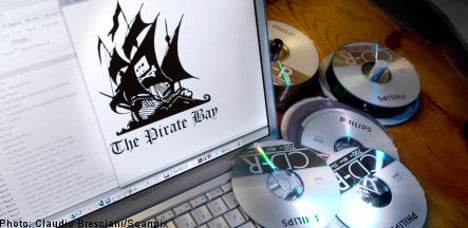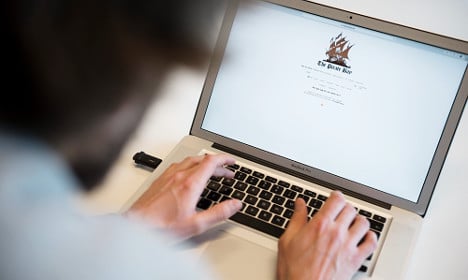“Internet providers Ziggo and XS4ALL must block their customers from accessing The Pirate Bay website,” The Hague district court said in a press release.
The case was brought by the copyright lobby group the Brein foundation, a trade body representing the Dutch recording industry, which said the website allowed rampant filesharing without authors’ consent.
Founded in 2003, The Pirate Bay makes it possible to skirt copyright fees and share music, film and computer game files for free using bit torrent technology, or peer-to-peer links offered on the site, which claims 32 million users.
Its owners have repeatedly appeared in court in the Netherlands and in Sweden, where they have been sentenced for promoting copyright infringements by running the site.
An Amsterdam court in October 2009 ordered the site to remove all links to the work of members of the Brein foundation, but the links can still be found on The Pirate Bay website.
“We have chosen (to go to court), because Ziggo is the largest provider and XS4ALL because it is known for campaigning against limitations on the Internet,” Brein’s director Tim Kuik told AFP.
Brein wanted to bring other providers to task as well said Kuik, adding The Pirate Bay “earned two million euros ($2.5 million) a year in advertising, perhaps, without respecting authors’ rights.”
The Hague court said about 30 percent of Ziggo’s clients and 4.5 percent of XS4ALL’s customers recently swapped music, movies or games on The Pirate Bay website.
The ruling comes on the heels of attacks by cyber-activists on websites of anti-piracy groups in Finland after a local Internet service provider blocked access to The Pirate Bay in response to a court ruling.
In May 2011, the Copyright Information and Anti-Piracy Centre (CIAPC) and the International Federation of the Phonographic Industry (IFPI) brought a case against Elisa, a major Finnish Internet service provider, seeking to block its customers from accessing the Swedish file sharing website The Pirate Bay.
Following a ruling by the Helsinki District Court last October ordering Elisa to block access to Pirate Bay or face a 100,000-euro ($130,000) fine, the service provider announced Monday it would temporarily block access to the site.
The websites of both plaintiffs in the anti-piracy case later became inaccessible, apparently due to the “Elisagate” campaign launched by the cyber-activists claiming an anti-censorhip agenda.
Antti Kotilainen, a spokesman for CIAPC, told AFP on Tuesday that websites run by his organization and the International Federation of the Phonographic Industry (IFPI) had been “down since Monday”.
“It isn’t the first time this has happened … We have no precise information who is behind this,” he added.
Meanwhile a group of hacker activists, or “hacktivists,” known as Anonymous Finland claimed responsibility on the microblogging site Twitter for the attacks, insisting about the CIAPC site: “We’ll keep it down as long as we want”.
Elisa meanwhile indicated in a customer statement Monday that it intended to appeal the October court ruling.



 Please whitelist us to continue reading.
Please whitelist us to continue reading.
Member comments